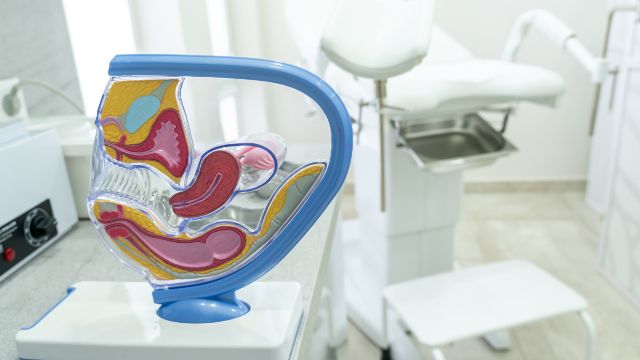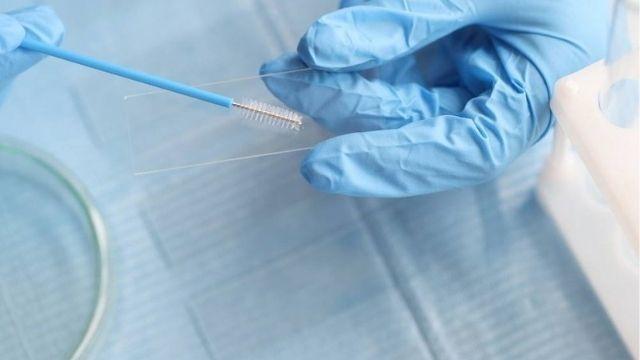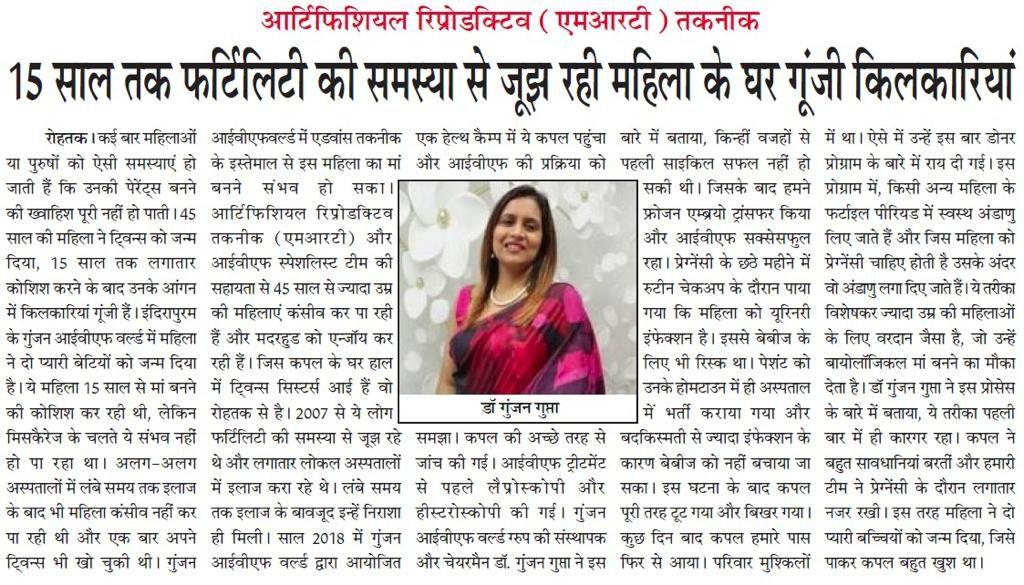Postmenopausal Bleeding
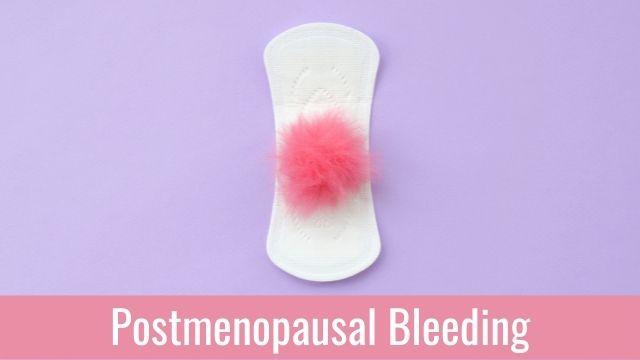
Overview
Menopause, in medical terms, is permanent stoppage of your period. Women is said to entered menopause if there is no bleeding for 12 months since last periods. Bleeding or spotting that occurs after this point is called postmenopausal bleeding (PMB).
It can be a symptom of noncancerous growths (polyps), vaginal dryness, or other changes in your reproductive system. Bleeding after menopause can also signify uterine cancer in about 10% of women.
Hence, postmenopausal bleeding should be checked out by a doctor. Early detection can help successfully treat conditions causing bleeding after menopause (including cancer).
Everything You Need to Know About Postmenopausal Bleeding
What Is It | Causes | Symptoms | Diagnosis | Treatment | Conclusion
What is Post Menopausal Bleeding?
Postmenopausal bleeding is defined as bleeding after a woman has gone through menopause. Menopause is a phase in a woman’s life that begins around the age of 51, during which her reproductive hormones start to decline, and her women’s menstrual cycles cease.
Women’s menstrual bleeding reappears over a year since their previous period is considered abnormal. Light bleeding or severe bleeding are also possible.
Causes of Post Menopausal bleeding
There are a variety of reasons why women have postmenopausal bleeding. However, some of the biggest prevalent reasons are, for example, the following:
- Polyps: Polyps are masses that may form on the womb wall, and they can be rather painful. Most of the time, they are noncancerous, although they might produce unusual or severe bleeding. Polyps can develop within the cervical canal. When this happens, a woman may suffer bleeding while having intercourse.
- Endometrial atrophy occurs when the hormone estrogen ceases being generated in a woman’s body due to menopause, causing her endometrial lining to become thinner. Because of this, it is possible that the covering of the endometrium will be more prone to bleeding.
- Endometrial carcinoma is a kind of cancer that affects the lining of the endometrium. Endometrial cancer is thought to cause uterine bleeding in 10 percent of postmenopausal women who suffer uterine bleeding.
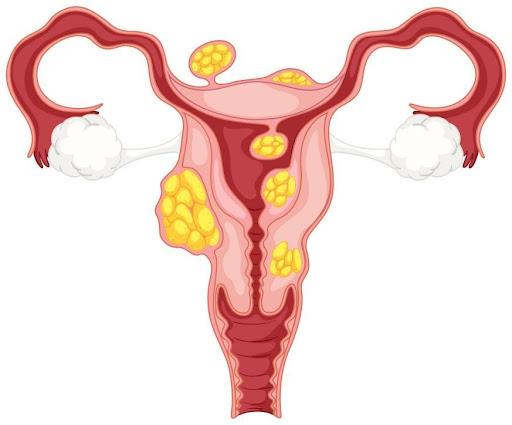
- Endometrial hyperplasia is a disorder in which the uterine lining thickens rather than becomes thinner, resulting in excessive or irregular menstrual flow. Overproduction of estrogen without enough progesterone levels to counteract it is most usually responsible for this disease. Endometrial hyperplasia is a condition that may occasionally result in the formation of endometrial carcinoma.
Sub Treatments For Gynecology
We are one of the Best IVF Clinic in Delhi NCR!
51.8K
Subscribers
4.6 (383 reviews)
4.5 (409 reviews)
3.5 (254 reviews)

5 Out Of 5
Symptoms of Post Menopausal bleeding
Postmenopausal bleeding may strike a woman with or without any additional symptoms. However, there may be indications. When bleeding occurs, it is important to know the reason.
As in the postmenopausal era, many menopause signs, such as hot flashes, frequently begin to diminish. Nevertheless, postmenopausal females may also suffer additional symptoms.
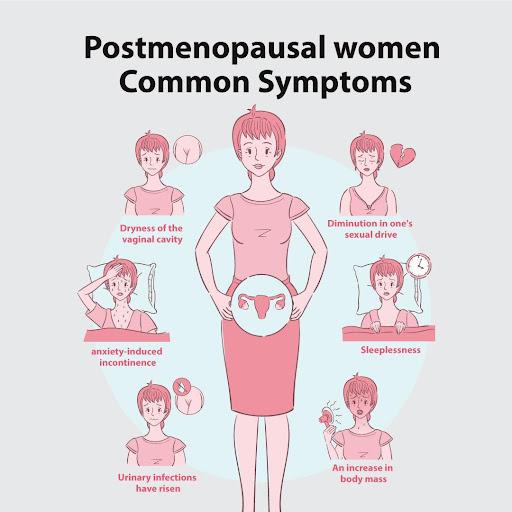
Diagnosis of Post Menopausal bleeding
Here are some important tests to detect PMB:
- Endometrial biopsy: histological evaluation of the endometrium that helps assess for atrophy, endometrial cancer, hyperplasia, or other histological abnormalities that can cause PMB.
- Transvaginal ultrasound: this imaging technique is used for those who have uterine pathology (eg, polyp, leiomyoma).
- Cervical cytology is done to assess the possibility of cervical cancer.
Treatment
What’s causing the bleeding will have a bearing on this. Various treatment options are:
1. Treatment with estrogen
In the treatment of vaginal and endometrial atrophy, estrogen therapy is employed. This hormone can be taken orally in form of pills, or cream for the genital area.
To apply the cream to your skin, you’ll need an applicator, a ring that is worn around the vaginal canal – It may be placed in place by either you or your doctor. It delivers a consistent dosage of estrogen for around three months and a tablet for the vagina – You’ll use an applicator to put it in. You may have to do it many times a week, or even every day.
2. Treatment with progestin
Endometrial hyperplasia is treated with this synthetic form of progesterone. In addition, your doctor may prescribe a tablet or injection, vaginal cream or an intrauterine device.
3. Dilation and Curettage
The surgeon opens your cervix during this procedure. Then, the curettage procedure will take place. When endometrial hyperplasia results in polyps or thicker portions of the uterine lining, a thin instrument is utilized to remove them.
4. Hysterectomy
Uterus is partially or completely removed using this procedure. It might even be necessary for those with pre-cancerous endometrial hyperplasia/endometrical cancer. In addition, your ovaries or surrounding lymph nodes may also have to be removed in this surgery.
Conclusion
Treatment for postmenopausal bleeding is nowadays common and highly effective. If cancer is the cause of your bleeding, your prognosis will be based on the kind of cancer and the detected stage. Make sure you discuss all treatments with your doctor to know why a particular treatment or test is being done over another.
Reach out to our experts to know more about post menopausal bleeding, its causes and treatment.
Patient Testimonials
It’s always the word of mouth that’s the best advice
Published On: 3 Dec 2018
London to Gunjan IVF: Mrs. Pragya's journey of parenthood |Treated for pregnancy care | Gunjan IVF
Published On: 7 Oct 2018
We are pregnant!! | Pregnancy after Fibroid Removal Treatment (Myomectomy)| Gunjan IVF World

Erica Benn
It was such a nice experience with Dr. Gunjan and how she tackle our case. I must recommend this clinic as one of the best IVF clinic in Delhi-NCR. Thanks to Dr. Gunjan to give me my motherhood.

Nitesh Kumar Thakur
Gunjan IVF World in Indirapuram, Ghaziabad is the best hospital for surrogacy and ivf services in Delhi-NCR. Dr. Gunjan Gupta is founder and director of Gunjan IVF World. Gunjan IVF is the best ivf center in Indirapuram , Ghaziabad. Treatments at affordable prices.

Akansh Garg
Dr gunjan gupta is one of best gyne in delhi ncr especially in ghaziabad she explains each n everything very clearly to avoid any confusion. staff is very supportive n helpful.

Manisha Pathak
Went for treatment at various places in Delhi since 2012. Then came to know about Gunjan IVF. Started treatment in October 2020. The treatment is going on and we are quite hopeful. Gunjan ma'am is a very good doctor who treated me well and the staff are also very good and helpful.

Erica Benn
It was such a nice experience with Dr. Gunjan and how she tackle our case. I must recommend this clinic as one of the best IVF clinic in Delhi-NCR. Thanks to Dr. Gunjan to give me my motherhood.

Nitesh Kumar Thakur
Gunjan IVF World in Indirapuram, Ghaziabad is the best hospital for surrogacy and ivf services in Delhi-NCR. Dr. Gunjan Gupta is founder and director of Gunjan IVF World. Gunjan IVF is the best ivf center in Indirapuram , Ghaziabad. Treatments at affordable prices.

Akansh Garg
Dr gunjan gupta is one of best gyne in delhi ncr especially in ghaziabad she explains each n everything very clearly to avoid any confusion. staff is very supportive n helpful.

Manisha Pathak
Went for treatment at various places in Delhi since 2012. Then came to know about Gunjan IVF. Started treatment in October 2020. The treatment is going on and we are quite hopeful. Gunjan ma'am is a very good doctor who treated me well and the staff are also very good and helpful.
Our Expert Team
Dr. Gunjan Gupta Govil
Founder & Director
Founder, Director & Gynaecologist with specialization in IVF, Infertility & Laparoscopy of 20+ years of experience.
(20+ years of experience)

Dr. Pradyot Kumar
Founder, CEO and a specialized Neurosurgeon who is an expert in complex Brain and Spine surgeries.
(25+ years of experience)

Mr. Gaurav Singhai
COO and an entrepreneur who co-founded Gujan IVF world along with Dr Gunjan and Dr Pradyot.
(5+ years of experience)

Paritosh Sarkar
Embryologist
He is a highly experienced and successful Embryologist with more than 10 years of experience in IVF.
(10+ years of experience)
Patient Guide
Along with treating our patients, we also guide them with the help of our educational blogs and videos.
Educational Blogs

Why do blastocyst not implant?
The reasons for an unsuccessful implantation are very uncommon and rare as well. Blastocyst provides a greater chance of becoming pregnant therefore the procedure is handled properly as well.

What happens after blastocyst transfer?
Before jumping to the immediate question first let’s have a small brief of what is blastocyst transfer. Blastocyst transfer is the transfer of embryos that have achieved a higher stage of development.

Can blastocyst fall out?
Maximum patients worry about what they can do or cannot do after an embryo transfer. They have the fear that if they do something wrong, the embryo would not attach or fall out.
Educational Videos
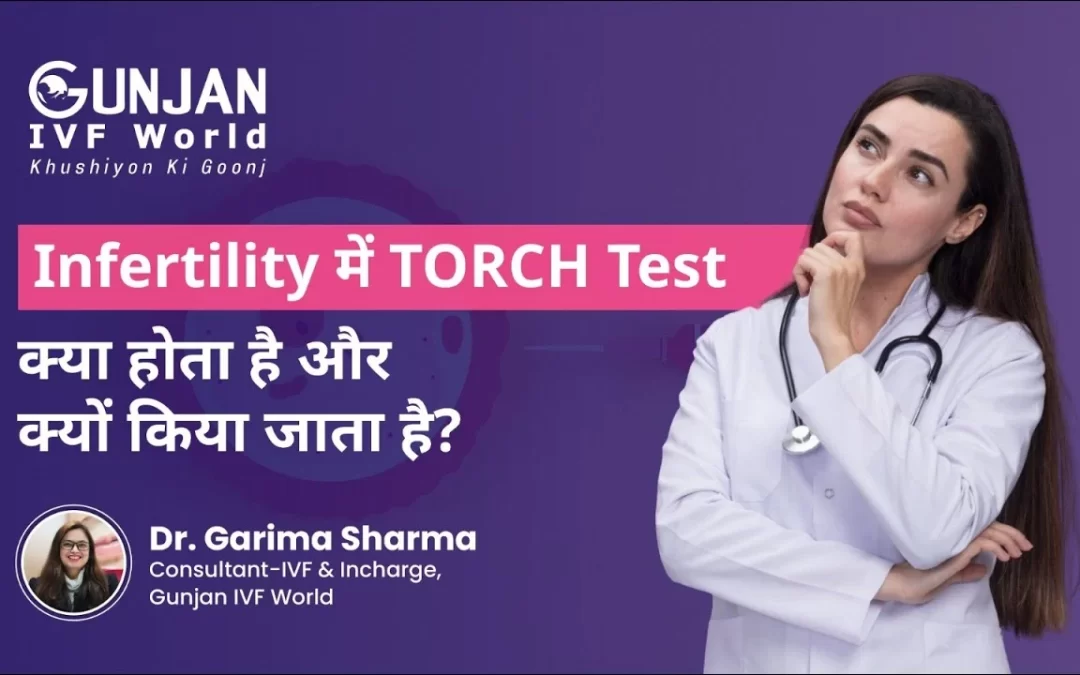
What is TORCH test in infertility and why is it done?
There are numerous tests that are available to infertile couples that are recommended by some doctors, which might help them determine the cause of their infertility. One such test is the TORCH test.
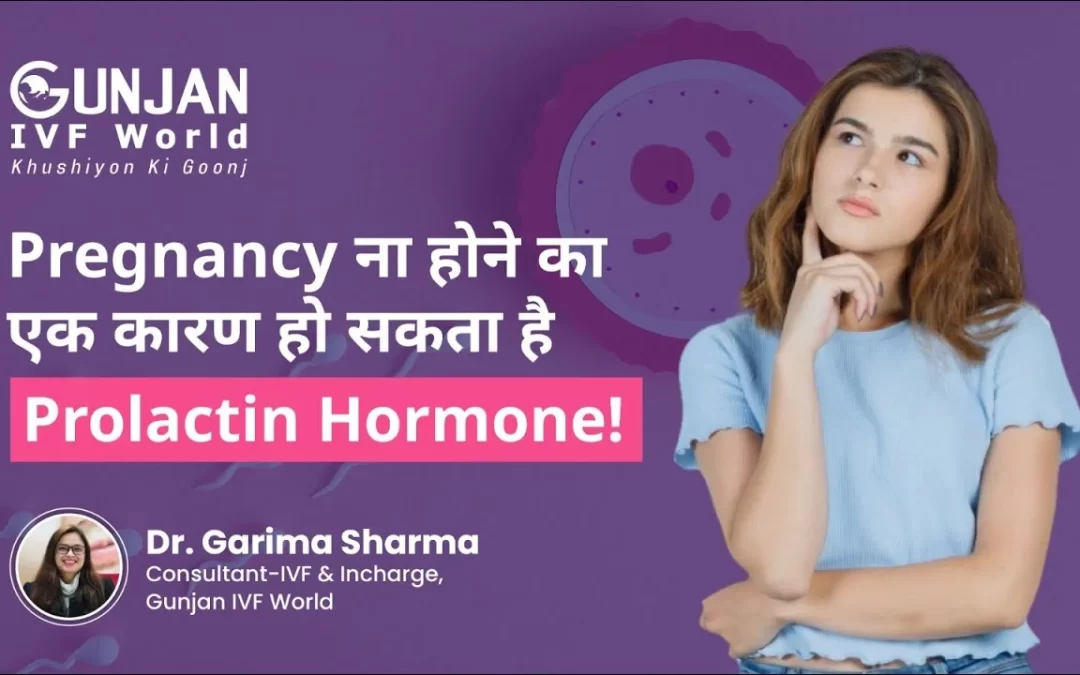
What is Prolactin Hormone?
Prolactin is a hormone produced by the pituitary gland present at the brain’s base. It is best known for its role in lactation, or milk production, in breastfeeding women.However, Prolactin also plays other important roles in both men and women, such as regulating the immune system, stimulating the growth of new blood vessels, and influencing behaviour and reproductive function. In this blog, we will explore what Prolactin is, how it works, and what happens when there are imbalances in prolactin levels.
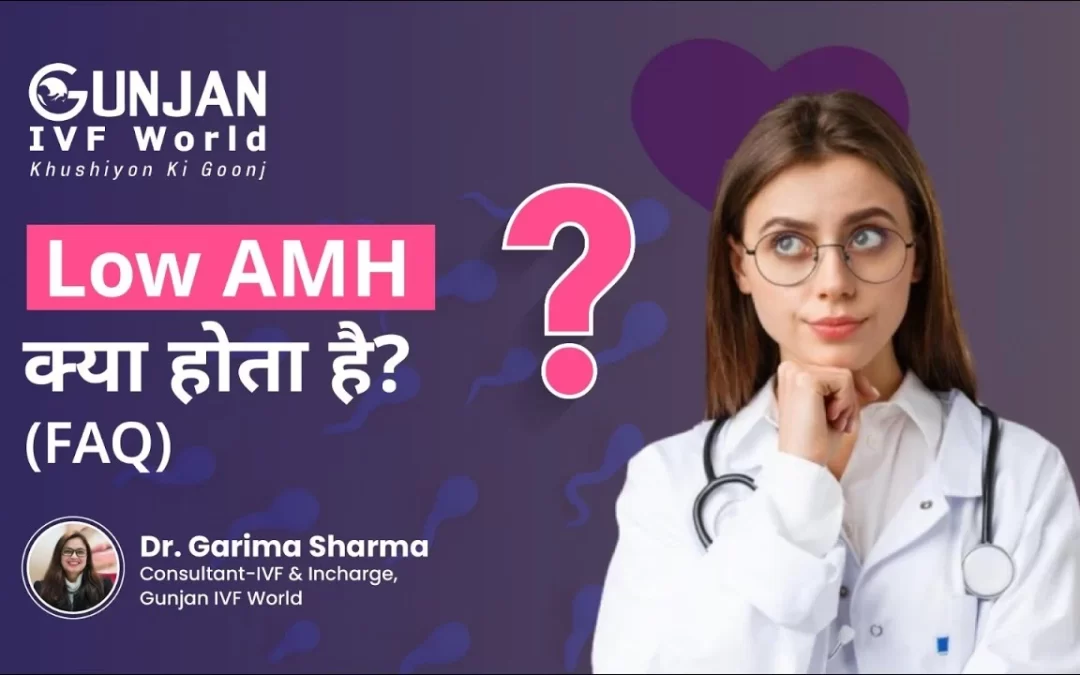
Frequently Asked Questions about Low AMH
Primordial and Preantral follicles produce AMH. So the AMH level indicates the number of eggs or egg reserves you have in your ovary. Putting simply, if your AMH level is low, then the number of eggs in your ovary is less.
Frequently Asked Questions
Does testicular temperature have an impact on male fertility
IVF specialists of the best IVF centre in Ghaziabad – Gunjan IVF World share an informative blog on one of the most ignored factors of male infertility. It is an alarming fact to...
Is male menopause a myth or reality ?
IVF specialists of the best IVF centre in Ghaziabad – Gunjan IVF World debunk the myths about male menopause through this informative blog Menopause as a term is extremely common...
Can smoking cause fertility problems in men?
IVF specialists of the best IVF centre in Ghaziabad – Gunjan IVF World share valuable insights on how smoking leads to infertility in men. Becoming parents is one of the greatest...



